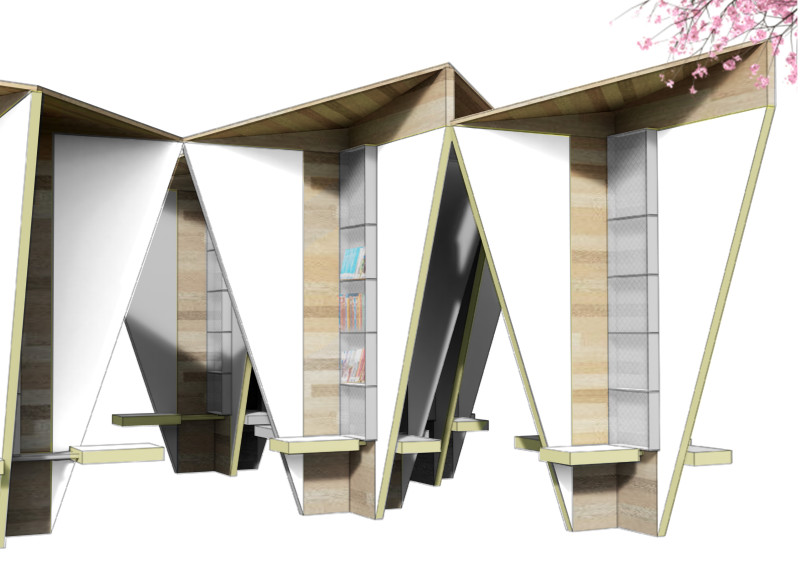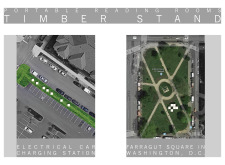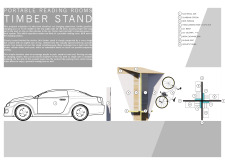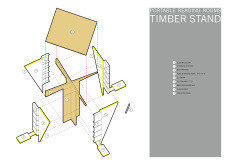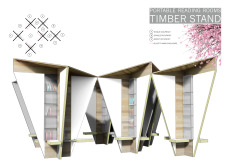5 key facts about this project
The Portable Reading Rooms project introduces a unique approach to urban spaces by combining reading areas with electric vehicle charging stations. Set in a city increasingly adopting electric transportation, the design aims to utilize the idle time of drivers. By creating a dedicated space for reading and community engagement, it significantly enhances the experience of waiting for a vehicle to charge in busy urban environments.
Structure and Spatial Configuration
The design features a timber stand supported by a cross-shaped cross-laminated timber (CLT) column topped with an angled roof. This structure provides necessary stability while also ensuring a distinct appearance in the urban landscape. The reading space is organized into four distinct zones that are divided by acoustic panels. These panels serve to reduce noise and give users a sense of privacy. Each zone accommodates four individuals, allowing for simultaneous use.
Functional Elements
Each reading zone includes a built-in book exchange box, fostering literacy and encouraging community interactions. Users can share books, which adds a communal aspect to the space. An extendable bench on a track offers versatility in seating, allowing people to adjust their comfort based on their reading preferences or group size.
Urban Mobility Considerations
The reading rooms can be effectively placed in various urban settings, functioning as single units or in groups. This flexibility allows them to adapt to different environments. Additionally, a vertical bike parking track is integrated alongside the acoustic panels to support urban bikers. This thoughtful detail provides a quiet space for cyclists who wish to read or rest.
Sustainability and Materiality
Cross-laminated timber is central to the design, reflecting a commitment to sustainable construction practices. This material adds strength to the structure while also bringing warmth to the interior space. The angled roof design is both functional and aesthetically pleasing, offering protection from the elements while enhancing the overall look of the reading room. The project balances practical needs with a welcoming atmosphere, inviting users to take a moment to pause and read.


